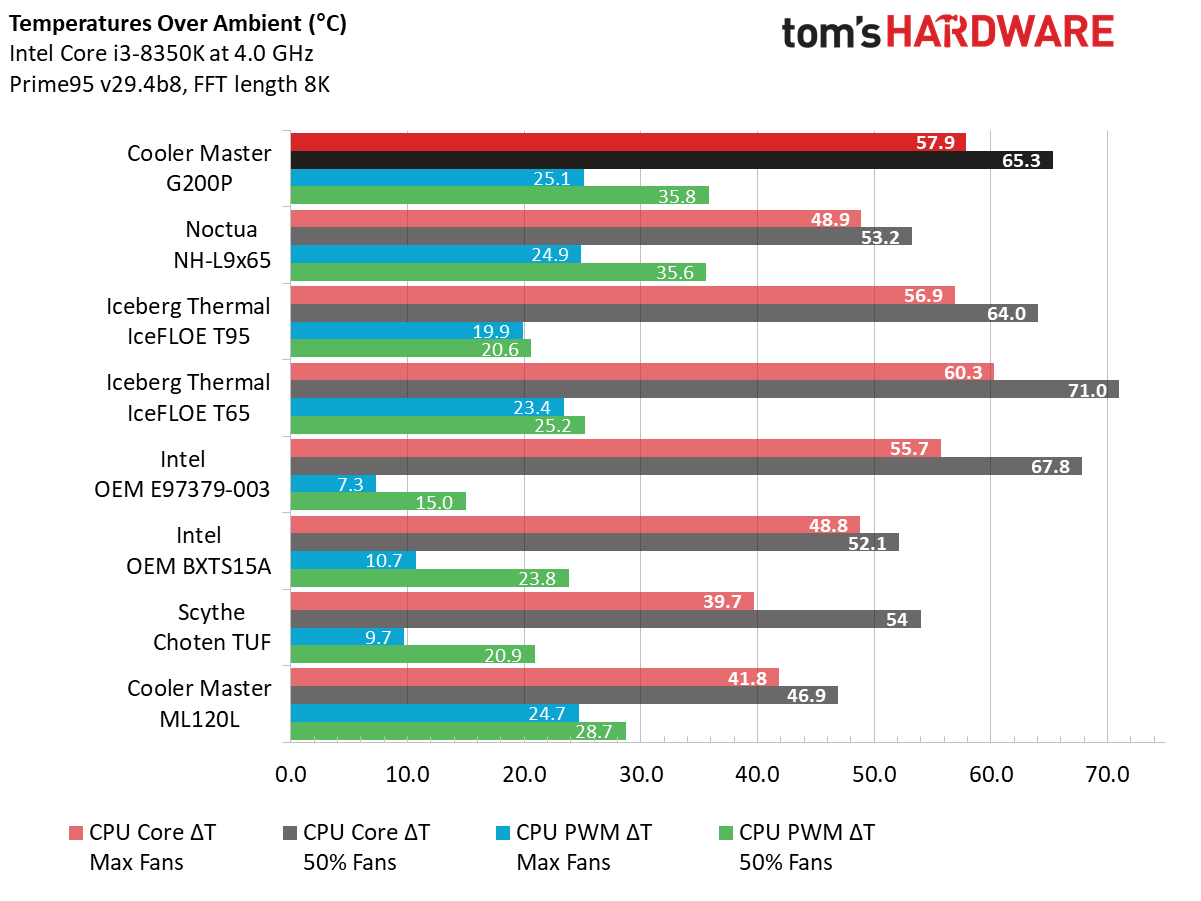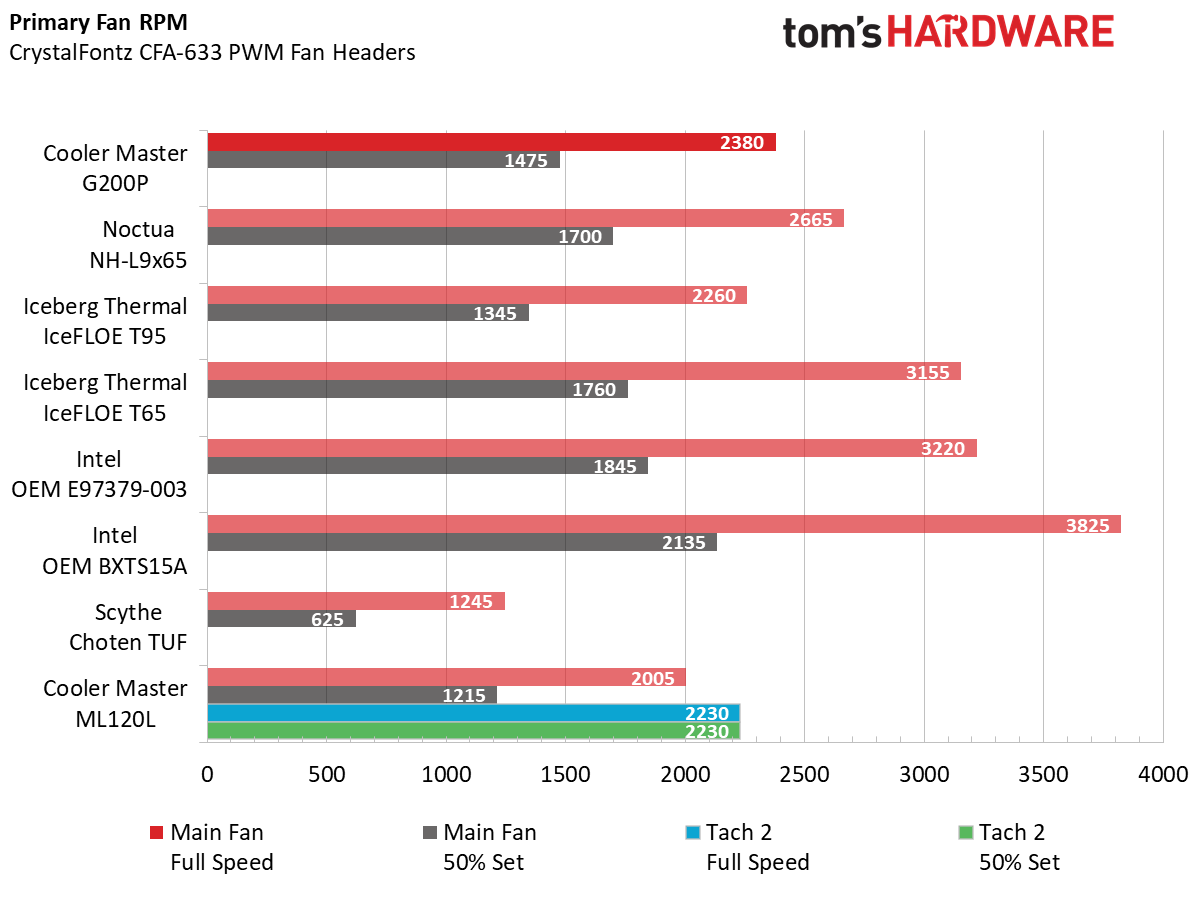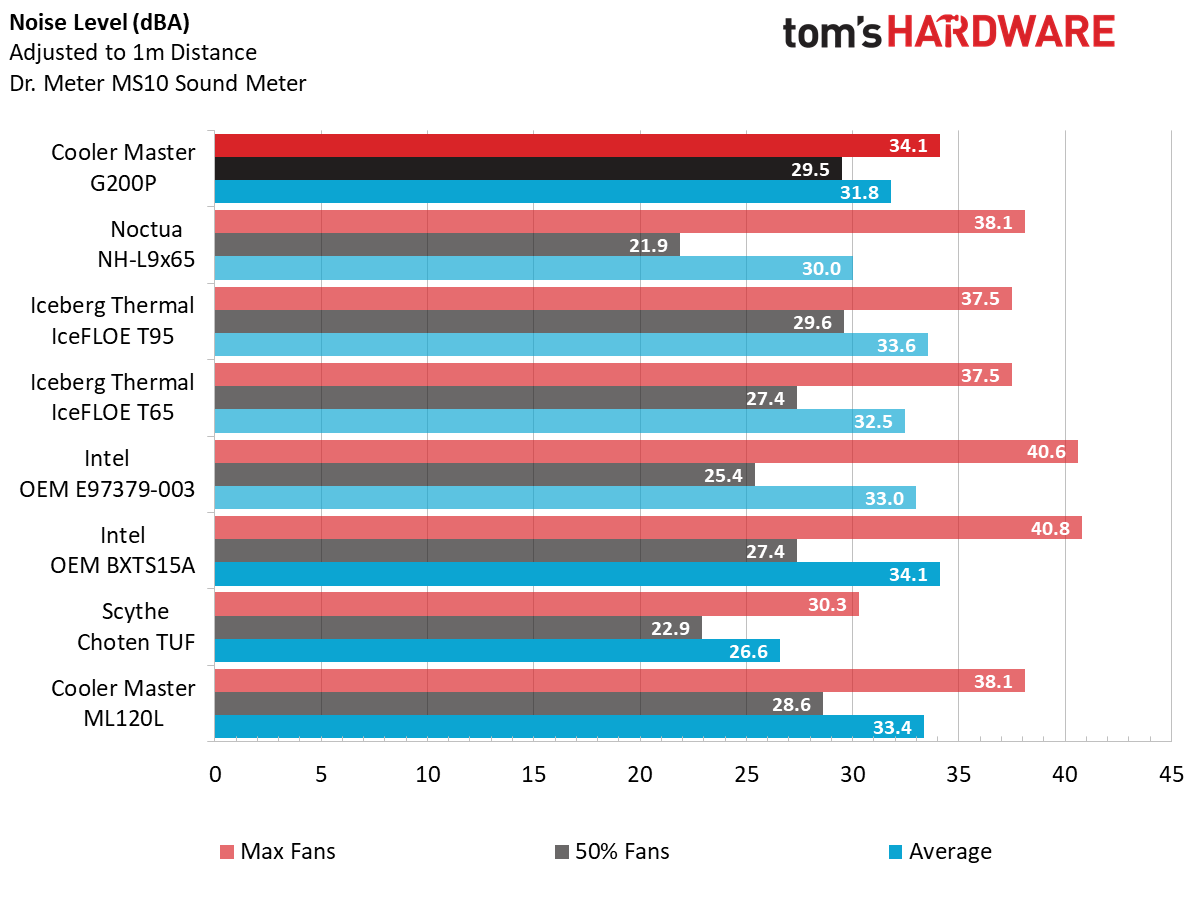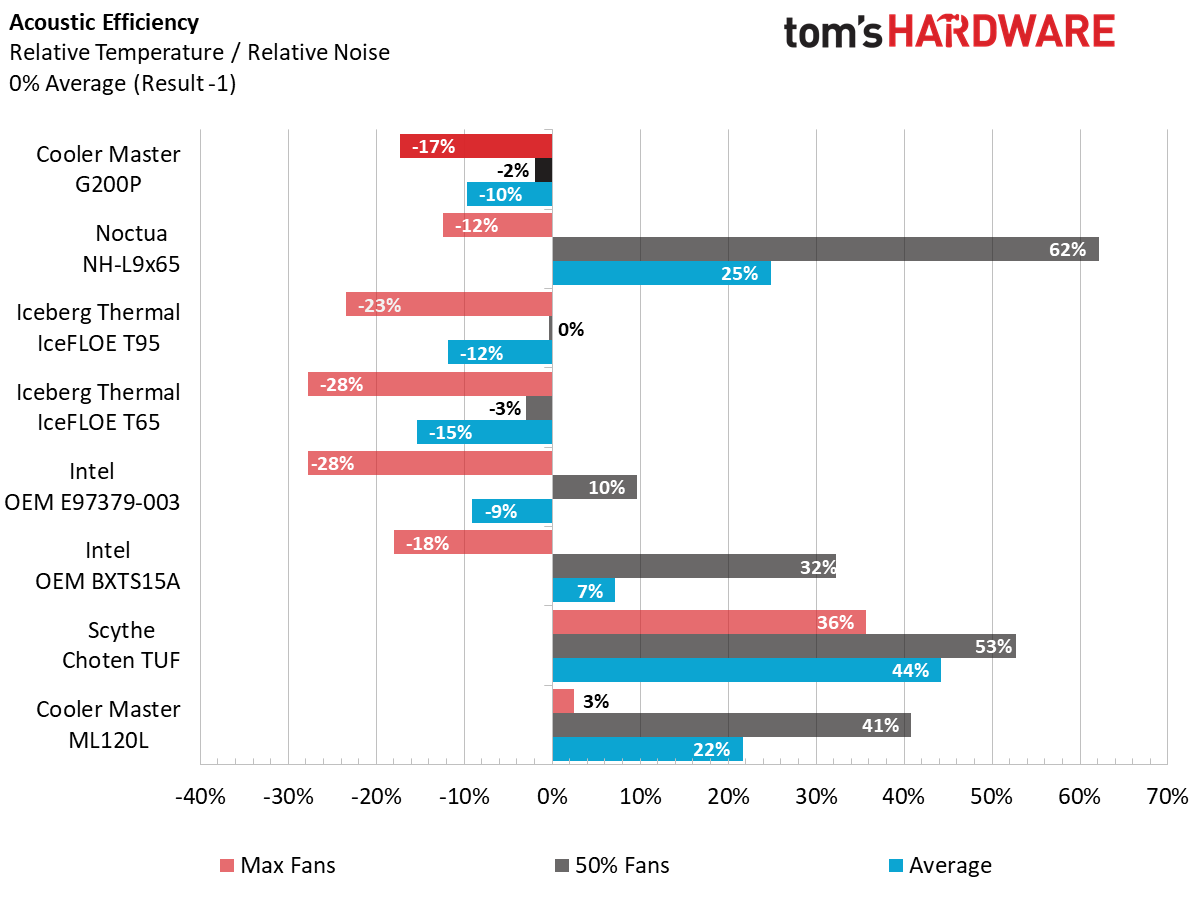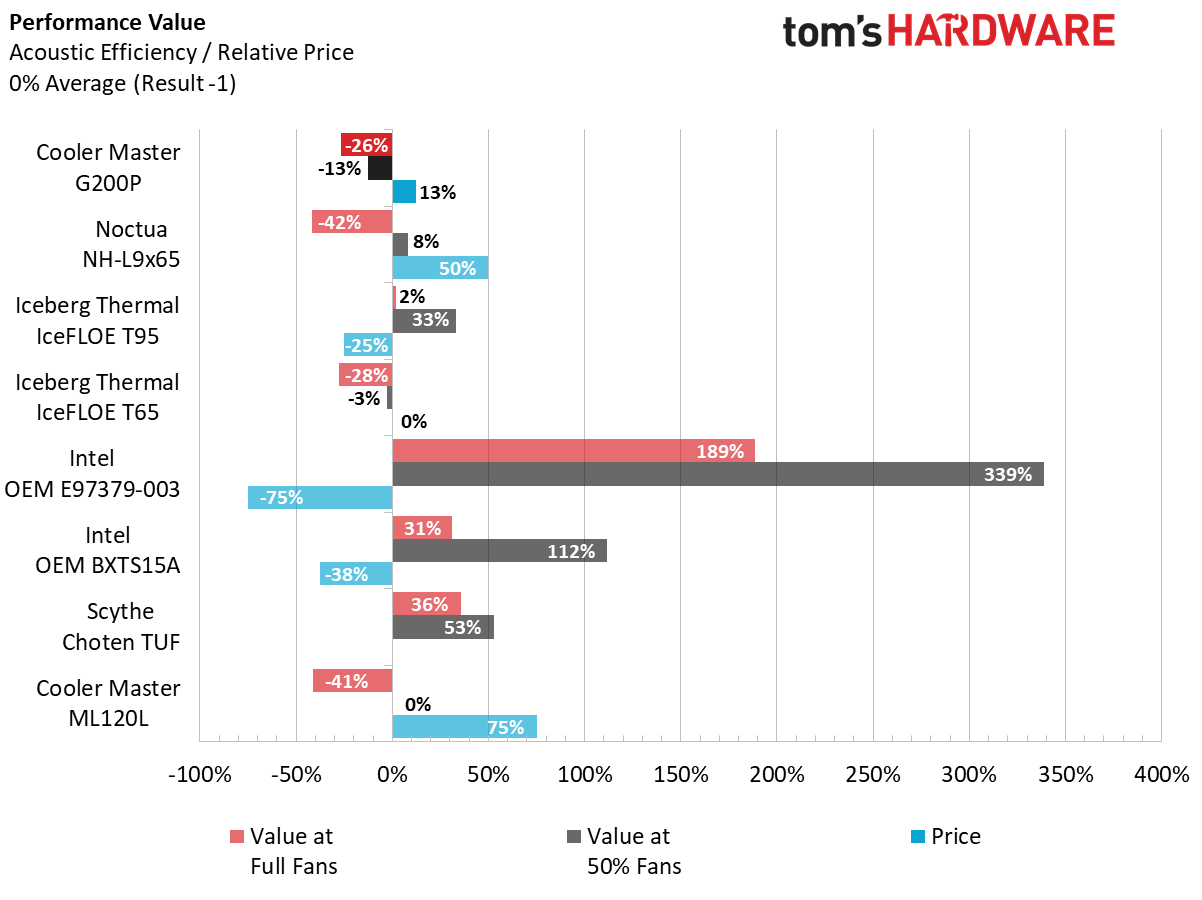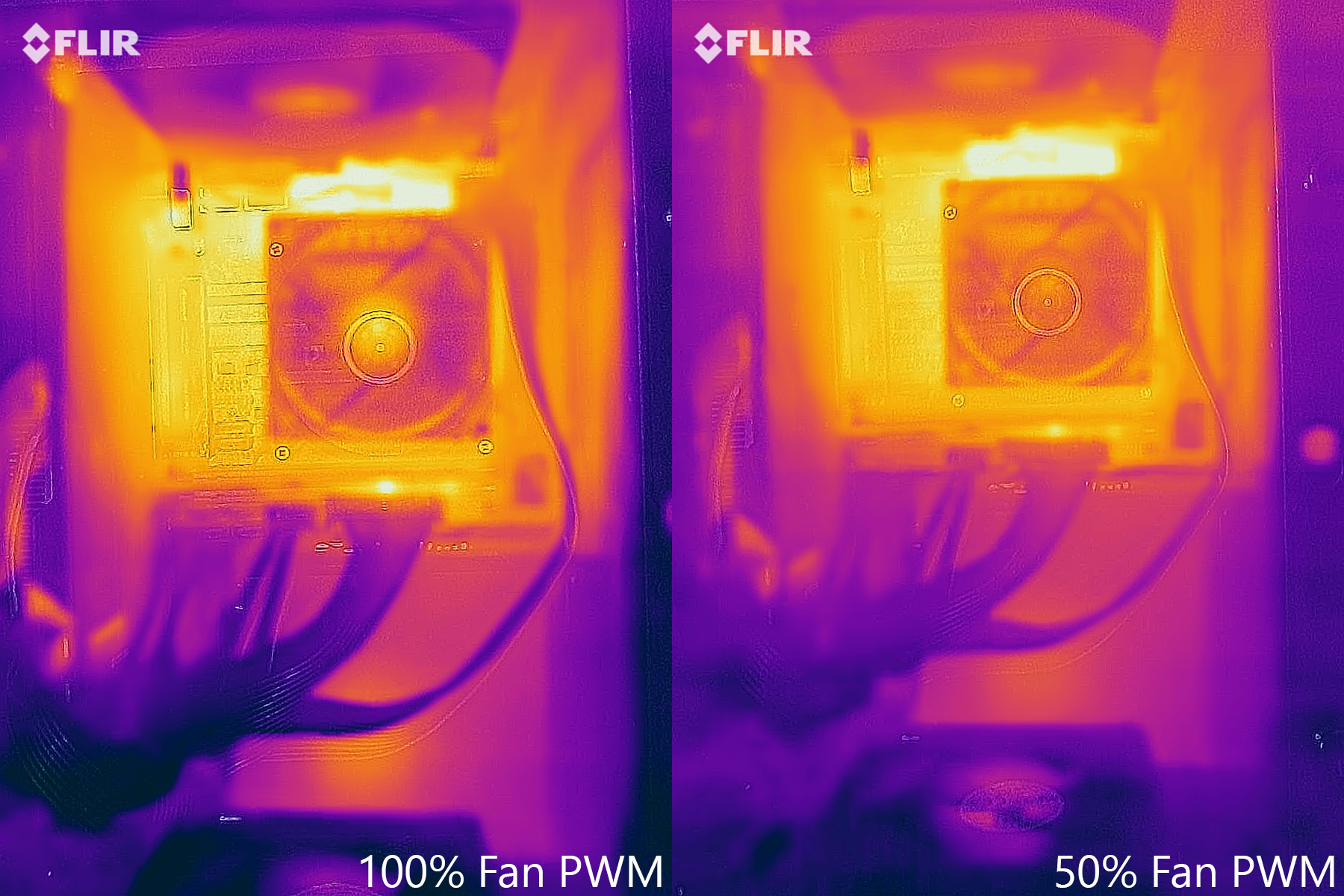Why you can trust Tom's Hardware
The Cooler Master G200P doesn’t exactly lead the pack in terms of cooling potential. Rather, it lags behind the majority of other small heatpipe coolers, including Intel OEM cooling solutions.
Most of our small cooling solutions utilize smaller diameter fans with higher RPM ratings, which tends to push some of our graphs further to the right than we typically see.
As expected, higher fan speeds typically result in elevated decibel levels across several of the small coolers on the list. Most notably, the pair of Intel OEM coolers top out with some rather high noise values, while the Scythe Choten TUF and its 120mm fan are almost whisper-quiet compared to the others tested here.
Our acoustic efficiency chart compares how well different coolers are able to dissipate thermal energy, while also evaluating the noise levels they each can effectively do this work. Coolers which struggle to perform or exhibit higher decibel values, or both, will see lower values.
Performance value compares the data from our acoustic efficiency chart and then evaluates unit price in the equation. The Cooler Master G200P sees poor thermal load results, which tend to hold it back, while also being priced at $45, giving it a low performance value score. Meanwhile, the Intel E97379-003 only performs slightly better than the Cooler Master G200P and produces a larger registered sound level, it is priced at only $10, giving it a considerable advantage for raw value alone.
The Intel BXTS15A really shines as a performance value candidate, due to its relatively good thermal scores but also while being fiscally sound.
Thermal imaging with our FLIR ONE Pro camera shows a significant difference between 100% and 50% PWMm as well as elevated localized regions of heat soak around the cooler and adjacent motherboard components. With such a small footprint, smaller coolers like the Cooler Master G200P rely heavily on higher fan speeds to dissipate thermal loads with greater efficiency.
Get Tom's Hardware's best news and in-depth reviews, straight to your inbox.
Overall, the Cooler Master G200P is a very handsome small-form-factor cooler with a very bright RGB fan, which shouldn’t cause any installation issues around memory compatibility, making it highly versatile. However, even in smaller system builds, the G200P doesn’t handle sustained CPU loads and temperatures very well. So unless your small system build is absolutely focused on themed RGB lighting, there are other options which can provide better cooling performance.

Garrett Carver is a contributor for Tom’s Hardware, primarily covering thermal compound comparisons and CPU cooling reviews; both air and liquid, including multiple variations of each.
-
watzupken I feel the review is not being fair to the cooler. From what I can tell, most if not all the coolers used as a point of comparison are bigger. Perhaps the best comparison for this are,Reply
Noctua NH-L9A/i
Intel/ AMD stock cooler
From my personal experience with this cooler, I feel despite it being low profile, it beats the stock coolers with comparable height, particularly from Intel, handily. Unfortunately, it couldn't handle the heat output from the Ryzen 5 3400G well. With an ambient temp of around 27 degree C, my system will crash when running 3D Mark's physics test and is pretty unstable even in the graphics test. I can't pinpoint if it is 100% an issue with the cooler or is it the 150W PSU not able to keep up with the load, but the temps are not looking good when I was testing it out. In games like Diablo 3, I can see temps in the late 70s to 80s. At idle, temps fluctuate between 50s to early 60s. -
rubix_1011 Both of the IceBerg Thermal coolers are very similar in size as well as the Intel E97379-003. Even the Noctua NH-L9x65 isn't that much larger in size, so there are several on the list which are direct comparisons in both size and price.Reply -
watzupken I agree for the IceFloe T65 and Intel stock cooler, and the results are pretty close for these 3 coolers. But for T95 and Noctua NH-L9x65, these are much bigger heatsink if we consider their height.Reply
